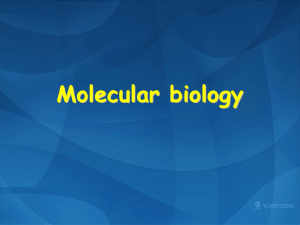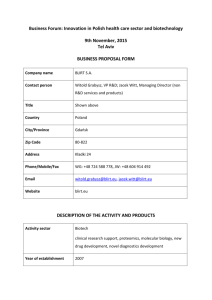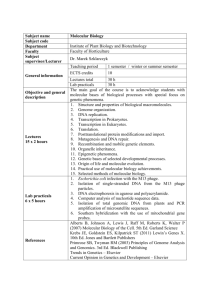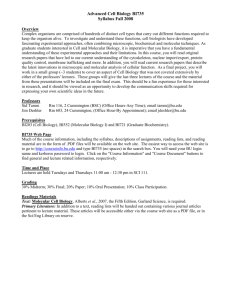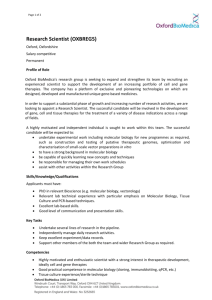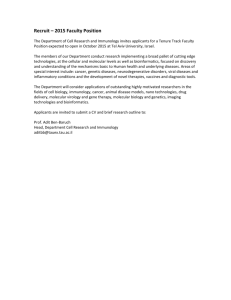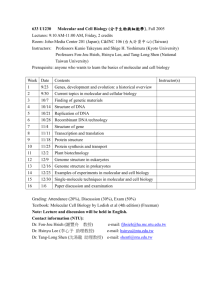Jeffery and Kay, Fall 2015
advertisement
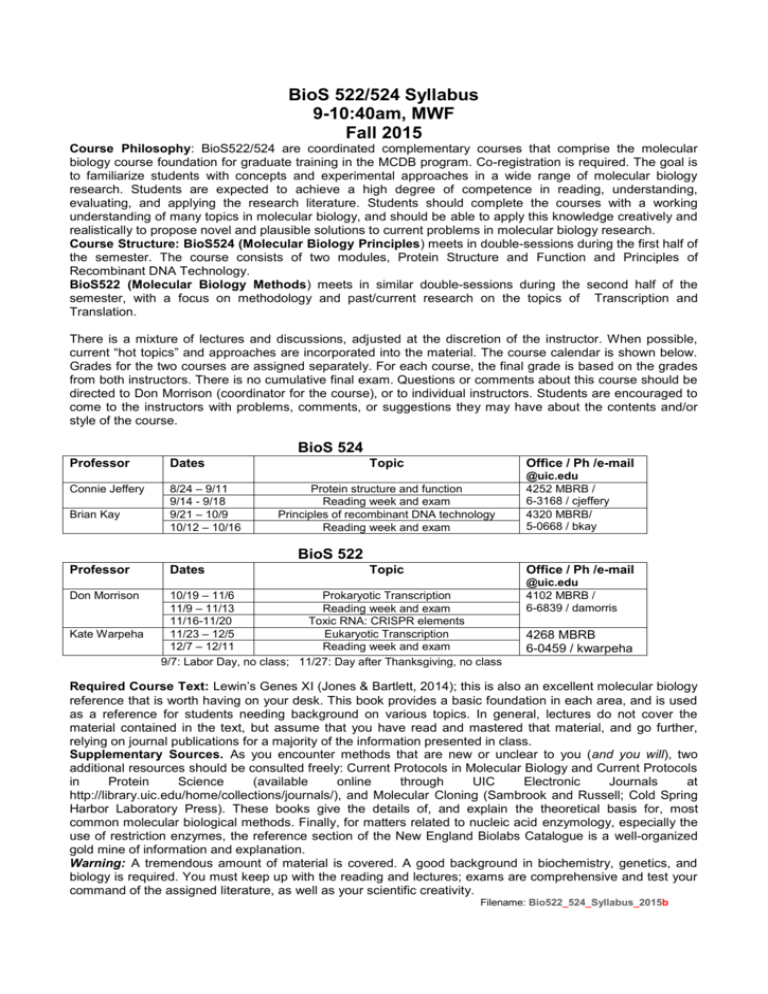
BioS 522/524 Syllabus 9-10:40am, MWF Fall 2015 Course Philosophy: BioS522/524 are coordinated complementary courses that comprise the molecular biology course foundation for graduate training in the MCDB program. Co-registration is required. The goal is to familiarize students with concepts and experimental approaches in a wide range of molecular biology research. Students are expected to achieve a high degree of competence in reading, understanding, evaluating, and applying the research literature. Students should complete the courses with a working understanding of many topics in molecular biology, and should be able to apply this knowledge creatively and realistically to propose novel and plausible solutions to current problems in molecular biology research. Course Structure: BioS524 (Molecular Biology Principles) meets in double-sessions during the first half of the semester. The course consists of two modules, Protein Structure and Function and Principles of Recombinant DNA Technology. BioS522 (Molecular Biology Methods) meets in similar double-sessions during the second half of the semester, with a focus on methodology and past/current research on the topics of Transcription and Translation. There is a mixture of lectures and discussions, adjusted at the discretion of the instructor. When possible, current “hot topics” and approaches are incorporated into the material. The course calendar is shown below. Grades for the two courses are assigned separately. For each course, the final grade is based on the grades from both instructors. There is no cumulative final exam. Questions or comments about this course should be directed to Don Morrison (coordinator for the course), or to individual instructors. Students are encouraged to come to the instructors with problems, comments, or suggestions they may have about the contents and/or style of the course. BioS 524 Professor Dates Connie Jeffery 8/24 – 9/11 9/14 - 9/18 9/21 – 10/9 10/12 – 10/16 Brian Kay Topic Office / Ph /e-mail Protein structure and function Reading week and exam Principles of recombinant DNA technology Reading week and exam @uic.edu 4252 MBRB / 6-3168 / cjeffery 4320 MBRB/ 5-0668 / bkay BioS 522 Professor Don Morrison Kate Warpeha Dates Topic Office / Ph /e-mail 10/19 – 11/6 Prokaryotic Transcription 11/9 – 11/13 Reading week and exam 11/16-11/20 Toxic RNA: CRISPR elements 11/23 – 12/5 Eukaryotic Transcription 12/7 – 12/11 Reading week and exam 9/7: Labor Day, no class; 11/27: Day after Thanksgiving, no class @uic.edu 4102 MBRB / 6-6839 / damorris 4268 MBRB 6-0459 / kwarpeha Required Course Text: Lewin’s Genes XI (Jones & Bartlett, 2014); this is also an excellent molecular biology reference that is worth having on your desk. This book provides a basic foundation in each area, and is used as a reference for students needing background on various topics. In general, lectures do not cover the material contained in the text, but assume that you have read and mastered that material, and go further, relying on journal publications for a majority of the information presented in class. Supplementary Sources. As you encounter methods that are new or unclear to you (and you will), two additional resources should be consulted freely: Current Protocols in Molecular Biology and Current Protocols in Protein Science (available online through UIC Electronic Journals at http://library.uic.edu/home/collections/journals/), and Molecular Cloning (Sambrook and Russell; Cold Spring Harbor Laboratory Press). These books give the details of, and explain the theoretical basis for, most common molecular biological methods. Finally, for matters related to nucleic acid enzymology, especially the use of restriction enzymes, the reference section of the New England Biolabs Catalogue is a well-organized gold mine of information and explanation. Warning: A tremendous amount of material is covered. A good background in biochemistry, genetics, and biology is required. You must keep up with the reading and lectures; exams are comprehensive and test your command of the assigned literature, as well as your scientific creativity. Filename: Bio522_524_Syllabus_2015b
